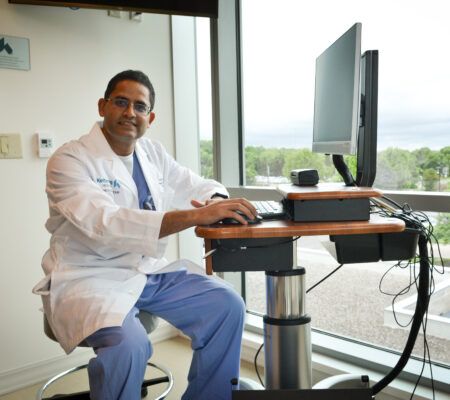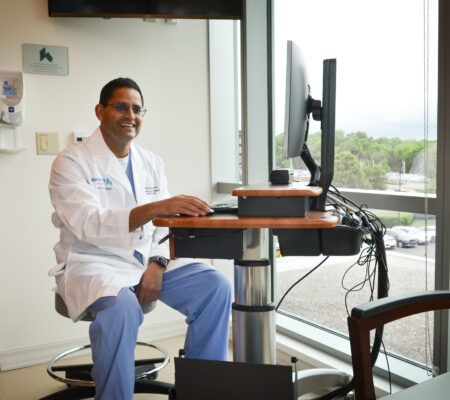At Kettering Health, we use the most innovative tools for brain and spine diagnosis available. The results help our experts build the right treatment plan for your unique needs.
Why Choose Us for Brain and Spine Diagnostic Testing?
Highlights of our program include the following:
- Best-in-class tools: We consistently bring state-of-the-art diagnostic technology to the region. Kettering Health Main Campus (formerly Kettering Medical Center) is one of a few facilities in the nation offering methionine PET scans (MET-PET). This technique helps us diagnose brain tumors earlier than other methods, so you can receive treatment as soon as possible.
- Collaborative team: We use a team approach to diagnose neurological conditions. Neuroradiologists, pathologists, neurosurgeons, neurologists, oncologists, radiation oncologists, and other providers work together to assess each patient’s case. You receive a thorough diagnosis. Our brain tumor board, composed of more than 15 physician experts, collaboratively reviews every patient’s course of treatment and coordinates their care.
- Second opinions: If you’ve received a diagnosis from a neurologist or neurosurgeon at another program, we’re happy to take a second look. A second opinion can help you approach treatment with more confidence and peace of mind.
How Are Brain and Spine Conditions Diagnosed?
Neuroimaging helps us see structures inside your body, such as bones, blood vessels, and soft tissues. Our neuroradiologists use many imaging technologies to create detailed maps of your brain and spine. This helps us provide you with an accurate diagnosis and effective treatment.
CT scan
A computerized tomography (CT) scan locates hemorrhages, tumors, infections, and bone fractures. We use radiation to examine cross-sectional images of the brain or spine.
CT angiography (CTA) uses a special dye to look specifically at blood vessel blockages or leaks. We use CTA scanners at all of our emergency centers to diagnose strokes as quickly as possible.
MRI
Magnetic resonance imaging (MRI) and MR angiography (MRA) use strong magnets and radio waves (no radiation). These imaging scans create pictures of the tissues, nerves, and blood vessels in the brain and spine. We use it to diagnose spine conditions, cerebrovascular diseases, and other issues.
At Kettering Health, we use several highly specialized types of MRIs:
- Functional MRI: This shows blood flow and activity in areas of the brain that control vision, speech, and muscle movement.
- 3D MRI: This is faster and more detailed than traditional MRI.
- 3 Tesla MRI (or 3T MRI): This uses a stronger magnet to create more highly detailed and complete images.
Nuclear and molecular imaging
Nuclear imaging helps us assess function and metabolism (chemical processes) in your brain and spine. We have many imaging techniques to help provide you with our best care.
SPECT
We use a test called single-photon emission computerized tomography (SPECT). SPECT uses radioactive tracers to track how blood flows through your body. It helps us diagnose epilepsy, injuries, and neurodegenerative disorders.
Methionine PET (MET-PET)
Brain tumors contain high amounts of an amino acid called methionine. During a methionine PET scan, we inject a synthetic form of methionine into your body. The tumors absorb this substance and show up on PET scans.
This highly specialized technique helps us detect and diagnose low-grade brain tumors early, before they show up on other imaging scans. Kettering was the first health system in the U.S. to routinely use C-11 methionine in PET scans for brain tumor diagnosis and treatment.
Neurological testing
Neurological testing helps us diagnose disorders like dementia and Alzheimer’s disease. Neurologists evaluate cognitive (thinking) function by testing your ability to learn, recall information, and respond to your environment. We assess the following:
- Concentration
- Coordination
- Emotional well-being
- Language skills
- Problem-solving
Electroencephalography (EEG)
An EEG looks for changes in your brain’s electrical patterns. We use continuous video EEG monitoring to locate the part of your brain that’s causing seizures. This test helps us select the most effective epilepsy treatment for your needs.





